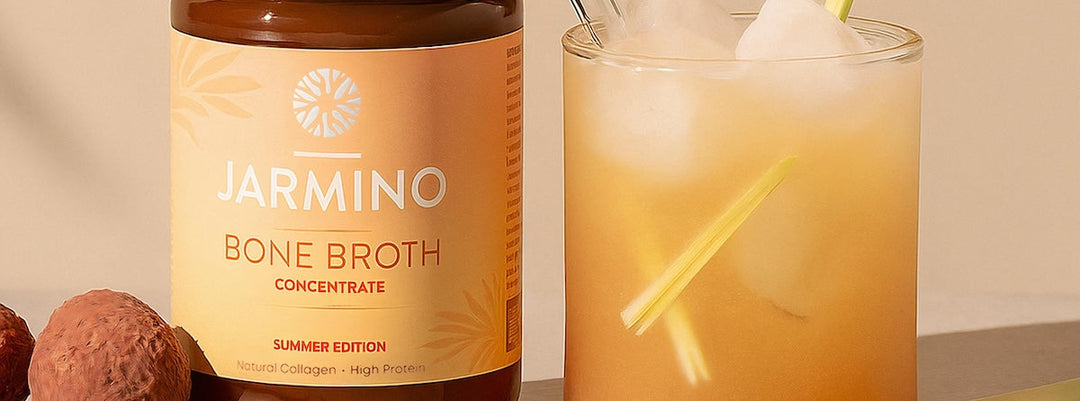Heartburn is a common problem caused by acid reflux, a condition in which part of the stomach contents are forced back into the esophagus. It causes a burning pain in the lower chest.
Table of contents:
1 Where does heartburn come from?
2. recognize heartburn
3. where does it hurt with heartburn?
4. how long does heartburn last?
5. heartburn does not stop
6. heartburn in the morning
7. heartburn in the evening
8. avoid heartburn
9. heartburn causes
10. heartburn due to stress
11. heartburn through sport
12. heartburn caused by water
13. heartburn caused by coffee
14. heartburn caused by milk
15. heartburn caused by sugar
16. heartburn symptoms
17. heartburn and diarrhoea
18. when the stomach is empty
19. heartburn and vomiting
20. heartburn and reflux
21. stomach pain with heartburn
22. heartburn and belching
23. heartburn and the diet
24. which foods to avoid?
25. what food to eat?
26. what bread to eat in case of heartburn?
27. herbs against heartburn
28. light diet for heartburn
29. tea for heartburn
30. heartburn during pregnancy
31. when to see a doctor?
32. when does heartburn become dangerous?
Where does heartburn come from?
Heartburn occurs when stomach acid comes into contact with the sensitive lining of the esophagus and irritates it.
How do you recognize heartburn?
Heartburn affects different people in different ways. But the symptoms of heartburn are generally described as follows: A burning pain that starts at the chest and moves towards the throat. The feeling that the food is coming back up into the mouth. A sour or bitter taste in the back of the throat. The pain increases when you lie down.
Heartburn where you feel it / heartburn how it feels
Heartburn is felt in the chest area, but it can also cause pain in the back. Heartburn feels like a burning pain that starts in the chest or sternum and moves towards the neck, and you also have a sour or bitter taste in the throat.
Heartburn for how long?
The unpleasant symptoms of heartburn can last two hours or more. Mild heartburn, which occurs after eating spicy or acidic foods, usually lasts until the food is digested. The symptoms may also reoccur a few hours after the first occurrence, especially if you bend down or lie down.
If heartburn does not stop?
If the symptoms of heartburn do not stop, become more severe or more frequent, you should consult a doctor. You may be suffering from gastroesophageal reflux disease (GERD), an indigestion that occurs when acidic gastric juices from the stomach flow back into the esophagus.
On which side to lie?
Studies have shown that sleeping on the right side tends to worsen heartburn, while sleeping on the left side tends to calm it down. The reason for this is not entirely clear, but one assumption is that sleeping on the right side relaxes the lower esophageal sphincter between the stomach and esophagus.
Heartburn in the morning
Heartburn can be particularly bad in the morning. This is probably because you have been lying more or less flat for the night, so that the esophagus is not higher than your stomach. This makes it easier for the acid from the stomach to flow back into the esophagus.
Heartburn in the evening
There are a few common causes of heartburn in the evening. These include eating certain foods too close to bedtime and taking certain prescription drugs
How to avoid heartburn
Heartburn is best avoided by proper nutrition. You should also eat smaller meals more frequently throughout the day, not lie down directly after eating and wear loose-fitting clothes to avoid pressure on the stomach. Other measures include stopping smoking and lifting the bed slightly at the head, e.g. by putting wooden blocks under the bedposts.
What helps against heartburn in the throat
For heartburn in the throat, herbal remedies to alleviate reflux are recommended, for example chamomile tea, bone broth, liquorice, tea of elm and marshmallow. Further measures to prevent heartburn: Eat light food Wear loose clothing Wear upright standing Raising the upper body Eating ginger Drinking apple vinegar Chewing gum.
Heartburn Causes
Heartburn is caused when the esophageal sphincter muscle relaxes abnormally or weakens and stomach acid flows back up the esophagus (acid reflux). Common causes of heartburn are: Certain foods and beverages - such as coffee, alcohol, chocolate and fatty or spicy foods Being overweight Smoking Stress and anxiety Pregnancy Some medications, such as anti-inflammatory painkillers (like ibuprofen) A hiatal hernia - when part of your abdomen moves up into your chest
Heartburn due to stress
Heartburn also occurs because stress can reduce the production of prostaglandins, which normally protect the stomach from the effects of acid. Stress can therefore increase heartburn and discomfort. Stress, coupled with exhaustion, can cause even more changes in the body, leading to increased acid reflux.
Heartburn after exercise
Sports and exercise can cause heartburn if the LES muscle (the lower esophageal sphincter) is weak or too relaxed and food or stomach acid rises from the stomach into the esophagus.
Heartburn from water
Drinking water is generally good, as it aids digestion. However, if you drink too much water at once, the volume of the stomach contents will increase and may worsen the heartburn symptoms. Especially when drinking carbonated water, the acid can irritate the throat.
Heartburn after coffee
Too much coffee plays a major role in the cause of heartburn. When the caffeine intake is too high, the muscle connecting the stomach to the esophagus relaxes. This creates an opening through which stomach acid can enter the esophagus, causing heartburn.
Heartburn caused by milk
Doctors advise against drinking milk to reduce heartburn, as it has been proven that milk temporarily relieves symptoms only to later increase the acid production of the stomach, which leads to more heartburn.
Heartburn caused by sugar
You may have felt this burning sensation of heartburn after eating sugar. Sugar and artificial sweeteners have a lot to do with making heartburn worse and may even be one of the causes of reflux. Artificial sweeteners like saccharin, aspartame and sucralose can damage the intestinal flora.
Heartburn symptoms
In addition to the burning sensation in the chest area, there are other symptoms of heartburn, including difficulty swallowing, diarrhea, vomiting, stomach pain.
Heartburn and diarrhea
A side effect of heartburn can be diarrhea. Diarrhea is defined as having loose, liquid or watery bowel movements at least three times a day. Diarrhoea is always a sign that the gastrointestinal function is impaired, as in the case of heartburn, for example.
Heartburn when stomach empty
Heartburn and nausea may occur if your stomach is too empty. Try to eat smaller and more frequent meals.
Vomit heartburn
Heartburn can also cause nausea or vomiting. You should consult a doctor if you vomit blood or a black mass.
Heartburn Reflux
Reflux is a common disease whose severity can range from mild to severe. Gastroesophageal reflux disease (GERD) is the chronic, more severe form of acid reflux. Heartburn is a symptom of acid reflux and GERD.
heartburn stomach pain
Eating habits or a chronic digestive problem can cause indigestion, which can lead to stomach pain, flatulence and heartburn.
Burping heartburn
Another common symptom of acid reflux and heartburn is belching - or the feeling of acid flowing back into the throat or mouth.
Heartburn diet
Many affected persons ask themselves: What should I eat in case of heartburn? In order to avoid the occurrence of heartburn and reduce the symptoms, you should eat a light diet. The light diet focuses on light, well-tolerated foods that calm the digestive system.
Heartburn which avoids food
The following foods should be avoided if you suffer from heartburn, as they can cause heartburn or aggravate the symptoms: Spicy food Onions Citrus fruits Tomato products, such as ketchup Fats or fried foods Peppermint Chocolate Alcohol, carbonated beverages, coffee or other caffeinated beverages Large or fatty meals.
Heartburn what foods eat
The following foods can be eaten to prevent or relieve the symptoms of heartburn:
Vegetables: Vegetables are naturally low in fat and sugar and help to reduce stomach acidity. Good options are green beans, broccoli, asparagus, cauliflower, leafy greens, potatoes and cucumbers.
Ginger: Ginger has a natural anti-inflammatory effect.
Oatmeal: Oatmeal is an excellent source of fiber. A high fiber diet has been associated with a lower risk of acid reflux. Other fiber options include whole grain bread and whole grain rice. For example, melons, bananas, apples and pears, are less likely to cause reflux symptoms than sour fruits.
Lean meat and seafood: e.g. chicken, turkey, fish and seafood, is low in fat and reduces the symptoms of acid reflux. Protein: Rely on high-quality protein sources such as collagen from pasture farming. Stay away from egg yolk, which is high in fat and can cause reflux symptoms.
Bone broth: If the esophagus has been damaged by acid reflux, bone broth can help heal the damage. It also reduces inflammation and repairs the intestinal mucosa. 1 cup of bone broth a day also helps to regulate the production of stomach acid.
Healthy Fats: Sources of healthy fats include avocados, walnuts, flaxseed, olive oil, sesame oil and sunflower oil. Reduce the intake of saturated fats and trans fatty acids.
Alkaline foods: Heartburn is often caused by eating too many acidic foods. Alkaline foods can balance the pH value and bring the acid-base balance back into balance. In the long run, an alkaline diet can therefore minimize the risk of heartburn.
Heartburn which bread
Whole grain bread can help reduce the acidity in the stomach. The high fiber content of whole grain bread helps to absorb and reduce the acidity that builds up and causes heartburn. However, you should avoid bread made from white flour, as this promotes acidity.
Herbs against heartburn
There is not much research on herbal remedies for heartburn. However, herbs and fruits such as angelica, caraway, chamomile, celandine, lemon balm, licorice or milk thistle are often used to treat heartburn. Especially herbs with bitter substances such as milk thistle, bow flower and bitter leafy vegetables like endive, spinach, cabbage, broccoli, grapefruit, olives, wild asparagus, radicchio, chicory are suitable for treating heartburn. Bitter substances improve the digestion of food.
Bare food for heartburn
Whoever suffers from heartburn can alleviate it by eating a light diet. With a light diet, you eat foods that are easily digestible. These include above all foods that are soft, contain less fiber and have a higher pH value. The bland diet prevents an increase in acid production, the reflux of gastric acid or other irritations of the digestive tract.
Heartburn which tea
Herbal teas help improve digestion and relieve many stomach problems such as heartburn, flatulence and nausea. Drink teas made from medicinal plants such as chamomile, fennel, liquorice, ginger, angelica, yarrow, aniseed or balm. If you live with acid reflux, avoid caffeinated drinks such as coffee and tea instead to reduce reflux symptoms.
Heartburn Pregnancy
During pregnancy heartburn is often an annoying symptom. But there are a few tricks you can use to avoid heartburn.
Heartburn is a common symptom during pregnancy. Heartburn occurs when the valve between the stomach and esophagus is unable to prevent the backflow of stomach acid into the esophagus. During pregnancy, the hormone progesterone causes the valve to relax, which can lead to heartburn.
What helps with heartburn during pregnancy?
If you have heartburn during pregnancy, a few simple tricks can help: Eat smaller meals spread out over the day Eat slowly Eat no large quantities at once, but spread out small quantities over the day Do not lie down directly after eating Do not eat directly for bed Do not eat with your head and breasts slightly elevated Sleep on food that relieves the symptoms of heartburn Drink anti-inflammatory bone broth or ginger Wear loose fitting clothes If you cannot control heartburn this way, you should discuss further measures with your doctor.
Heartburn when to see your doctor
Heartburn is actually harmless, but sometimes it can become chronic. If the symptoms do not stop after several days up to two weeks, you should consult a doctor.
Heartburn which doctor
Anyone who suffers from symptoms of heartburn for a longer period of time should consult a gastroenterologist. The doctor can then make a diagnosis and start treatment for chronic heartburn.
Heartburn when dangerous?
If you experience difficulty swallowing, chest pain, hoarseness or other atypical symptoms, you should see your doctor immediately. Anyone who has reflux-like symptoms for years is at risk for esophageal cancer and should also see a doctor. If the symptoms persist even after two weeks of treatment with over-the-counter medication, you should make an appointment with your doctor.





